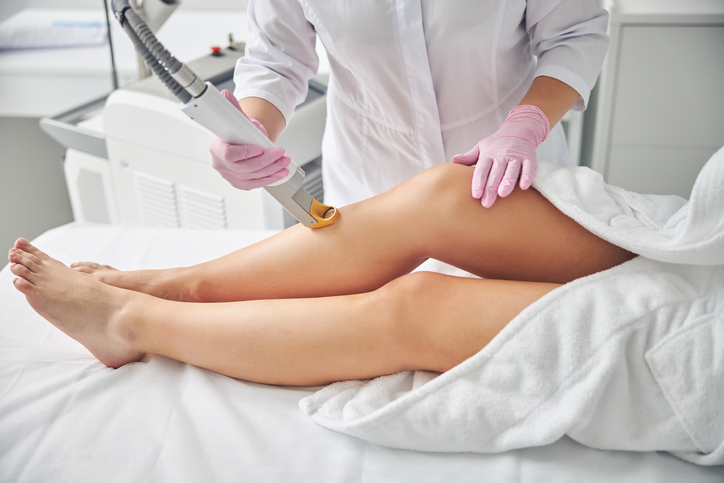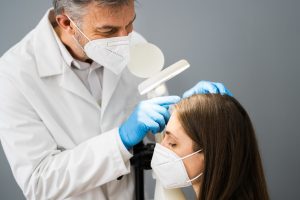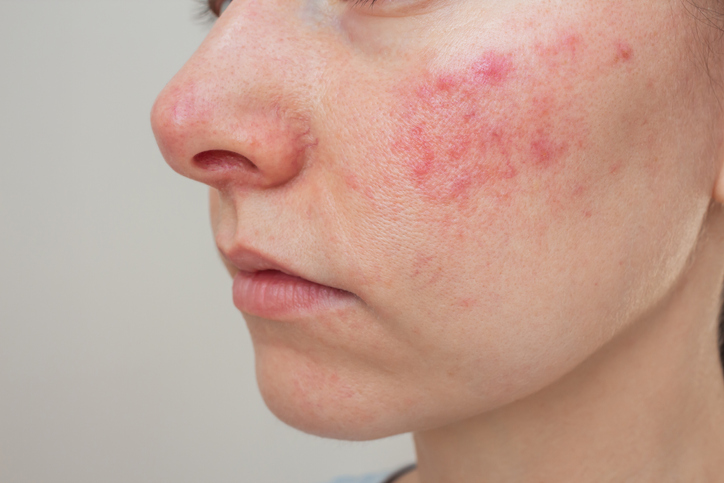
The evolution of intense pulsed light
Intense pulsed light (IPL) has become a staple in beauty salons and dermatology clinics. Learn how it works for hair removal, acne management, and more.
Dr Michael Rich is a specialist dermatologist who has been performing tumescent liposuction for over 30 years. Find out if Liposuction is suitable for you at ENRICH Clinic.
At ENRICH Clinic, we have a wide range of dermatological and cosmetic body treatments tailored to individual body and patient needs.
At ENRICH Clinic, our treatments are performed by our medical team consisting of doctors, nurses, and dermatologists and are tailored to each patient’s skin health needs.
ENRICH Clinic is committed to your skin health and well-being with a range of dermatological & cosmetic treatments tailored to the individual. Our treatments are performed by our medical team consisting of doctors, nurses, and dermatologists.
Skin health is essential for everyone. ENRICH Clinic has a wide range of technologies and dermatological solutions to help you achieve your skin care goals.
It can get confusing when determining who is what regarding qualifications in cosmetic treatments. So let’s clear a few things up!
You’ll see a few common terms around the internet, but it’s important to check the website’s location. A lot of cosmetic content comes from the US, where the designations of doctors are different to those in Australia, though they are similar. If you’re looking at an Australian website and want to clarify who will be performing your treatments, here’s the brief.
Note: All medical doctors who work in the cosmetic field can be called cosmetic physicians. A physician is another word for a medical doctor.
A cosmetic doctor is a general practitioner (GP), a medical doctor who offers cosmetic treatments. A cosmetic doctor isn’t a dermatologist, and any doctor could call themselves a cosmetic doctor. ‘Cosmetic doctor’ is not an official designation, though it clearly explains a doctor’s area of interest.
A cosmetic doctor might perform anti-wrinkle and dermal filler injections, laser, radiofrequency and other high-tech treatments while also being able to help patients with other health concerns. A cosmetic doctor has a standard medical licence.
A dermatologist is a specialised medical doctor who goes above and beyond their standard medical training and licences to hone one specific area of medicine: the skin, hair and nails, also known as dermatology. A dermatologist deeply understands skin diseases but may not necessarily specialise in cosmetic treatments. They take on extra years of study to achieve their specialist dermatology qualification.
A dermatologist may have a particular interest in their chosen field (i.e., skin cancer, eczema, acne, etc.) from a medical perspective; however, they may also be interested and experienced in the cosmetic side of skin, nails, and hair. Thus, the cosmetic dermatologist is born.
Dermatologists can perform surgery, though the extent of the surgery will depend on their interests. Many minor dermatological surgeries include removing moles or skin lesions, with more extensive cosmetic surgeries including liposuction.
Like the cosmetic doctor, the cosmetic dermatologist is a dermatology graduate interested in aesthetics (how we look). A cosmetic dermatologist works with patients to improve the look, shape and feel of the skin and body, for example, treating unwanted fatty deposits, sagging skin, wrinkles, or cellulite.
A cosmetic dermatologist works with patients affected by specific skin and medical conditions and scars. For example, a great deal of experience working with lasers means a cosmetic dermatologist is well-placed to administer the same treatment to those with scarring.
The tools of the cosmetic dermatologist cross many divides in medicine alongside colleagues who work in reconstructive medicine (the plastic surgeon). The dermatologist vs plastic surgeon compares two separate (but related) medical disciplines, one focused solely on surgical procedures and the other on the skin.
A plastic surgeon is a recognised medical designation, part of the specialty area of surgery. Like the cosmetic dermatologist, a plastic surgeon is a medical doctor who goes above and beyond the standard medical training to become a surgeon. Other recognised surgeons include a neurosurgeon (brain) or a vascular surgeon (veins).
Plastic surgeons work in what’s known as reconstructive or plastic surgery. Reconstructive surgery is all about repairing and reconfiguring after surgery or an accident, restoring the look and behaviour of a body part (form and function).
 ‘Plastic’ has often been subbed in for ‘superficial’ when discussing cosmetic or ‘plastic’ surgery – in the sense that plastic is cheap, fake and shiny, like a Barbie Doll. You would be forgiven for thinking that plastic surgery was a colloquial term with its reputation for Hollywood-Barbie Doll aspirations. But, it’s not – ‘plastic’ is a medical word that existed long before plastic.
‘Plastic’ has often been subbed in for ‘superficial’ when discussing cosmetic or ‘plastic’ surgery – in the sense that plastic is cheap, fake and shiny, like a Barbie Doll. You would be forgiven for thinking that plastic surgery was a colloquial term with its reputation for Hollywood-Barbie Doll aspirations. But, it’s not – ‘plastic’ is a medical word that existed long before plastic.
The word plastic comes from the Greek word ‘plastikos’ and means to grow or form. The substance plastic as we know it was only invented in the early 1900s and was given its name due to its ability to be formed or moulded,
Great examples of reconstructive or plastic surgery include creating a new breast after a mastectomy, rebuilding facial features after a severe car accident, or repairing a cleft palate as a child.
A plastic surgeon may also work solely in aesthetics, such as breast implants, tummy tucks or facelifts. When surgery is for aesthetics only (form, not function), it is considered cosmetic surgery rather than reconstructive surgery.
A cosmetic surgeon is, by contrast, is a regular doctor who performs some surgeries. Under current legislation, cosmetic surgery is not a recognised medical specialty. Any medical practitioner can perform cosmetic procedures. New laws are about to come into Australia, curtailing the use of the term Cosmetic Surgeon by those who do not have the surgical qualifications.
Surgeons are doctors who have completed further training in a surgical specialty, recognised by the regulatory authorities of the Australian Medical Council (AMC), Medical Council of New Zealand (MCNZ), and the Australian Health Practitioners Regulatory Agency (AHPRA).
All doctors learn surgery as part of medical training, and you undergo surgery when you have a mole or wart removed, receive certain laser treatments, or have liposuction.
APHRA has recently updated some of its guidelines regarding cosmetic surgery and are still going stay tuned!
The Australian Medical Board has a set of guidelines for what they classify as a medical or surgical operation or procedure and if that is cosmetic. The Medical Board’s official guidelines for doctors who perform cosmetic medical and surgical procedures says:
Cosmetic medical and surgical procedures are operations and other procedures that revise or change the appearance, colour, texture, structure or position of normal bodily features with the dominant purpose of achieving what the patient perceives to be a more desirable appearance or boosting the patient’s self-esteem.
Meanwhile, it says that a major cosmetic medical or surgical procedure – cosmetic surgery – involves cutting beneath the skin, such as breast augmentation, rhinoplasty, surgical facelifts and liposuction.

Minor cosmetic procedures are not considered surgery and do not involve cutting beneath the skin but can involve piercing the skin, for example, varicose vein treatments and laser treatments.
Skin treatments include CO2 lasers, mole removal, laser hair removal, dermabrasion, chemical peels, injections, sclerotherapy and hair replacement therapy. Since they only change the appearance of an area of the body, these procedures are usually not considered ‘medically necessary’ and are usually not covered under Medicare. If your doctor considers your treatments medically justified, they fall outside the cosmetic umbrella.
Our clinic has a collection of specialist dermatologists, cosmetic dermatologists & cosmetic doctors. Dr. Michael Rich is a specialist dermatologist who performs liposuction, having trained under Dr Jeffrey Klein, also a dermatologist and the inventor of the tumescent liposuction technique.
Get in touch to make an appointment!
ENRICH Clinic
*With all surgeries or procedures, there are risks. Consult your physician (GP) before undertaking any surgical or cosmetic procedure. Please read the consent forms carefully and be informed about every aspect of your treatment. Surgeries such as liposuction have a mandatory seven-day cooling-off period to give patients adequate time to be sure of their surgery choice. Results may also vary from person to person due to many factors, including the individual’s genetics, diet and exercise. Before and after photos are only relevant to the patient in the photo and do not necessarily reflect the results other patients may experience. Ask questions. Our team of dermatologists, doctors and nurses are here to help you with any of your queries. This page is not advice and is intended to be informational only. We endeavour to keep all our information up to date; however, this site is intended as a guide and not a definitive information portal or in any way constitutes medical advice.
"*" indicates required fields
Combining Dr Rich’s dermatological skill with his knowledge of restorative skin regimes and treatments, the ENRICH range is formulated to help maintain and complement your skin. Our signature Vitamin C Day & Night creams are now joined by a Vit A, B,&C Serum and a B5 Hyaluronic Gel, both with hydration properties and much, much more.

Intense pulsed light (IPL) has become a staple in beauty salons and dermatology clinics. Learn how it works for hair removal, acne management, and more.

Worried you have eczema, dermatitis, or psoriasis? We talk symptoms, causes, triggers, and treatments for these common causes of itchy skin.

Research has shown that snoring can be reduced by up to 60% after two or three treatments with ENRICH Clinic’s high-tech target lasers designed to tighten the soft palate and stop snoring.

Suddenly dealing with itchy skin? We’ll talk about the common causes and how to find relief.
Subscribe to the ENRICH newsletter and receive latest news & updates from our team.
Enrich Clinic acknowledges the Traditional Lands of the Wurundjeri Woi Wurrung and Bunurong peoples of the East Kulin Nations on which we work and trade. We pay respect to their Elders past, present and emerging. We extend our acknowledgement and respect to the LGBTQIA+ community who we welcome and support. Read our full Acknowledgement Statement here
